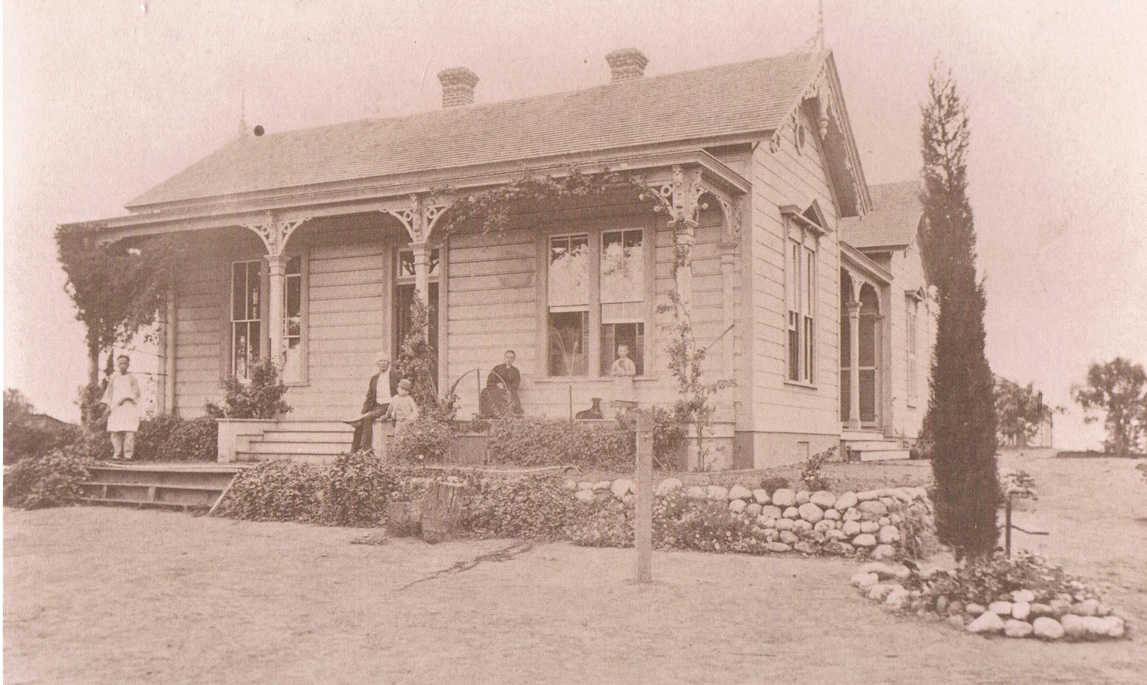
b) Andrew O. Porter I with my grandfather, Don C. Porter (note the shape of the head; compare next to last photo).
--
Joke caption Piper-style:
b) Crime boss Andrew O. Porter I with my grandfather, Don C. Porter, heir to the Porter crime dynasty.
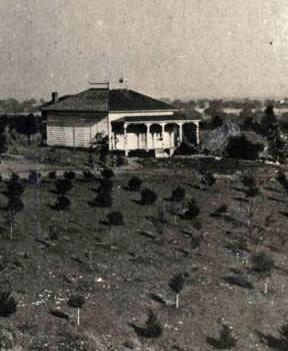
c)
Porter's closest -- and probably only -- neighbour, business associate and brother-in-law, J.M. Green, also from Shelbyville, lived about 300 yards away.
--
Joke caption:
c) Porter's closest -- and probably only -- neighbour, business associate and brother-in-law, J.M. Green, also from Indiana (or possibly Michoacán) lived only 300 yards away. Note marijuana plants disguised as orange tree saplings. Subterranean escape tunnels connecting the two houses and leading to a third location not visible in photograph.
--
Analysis:
"Not visible in photograph" = Photograph proves nothing.
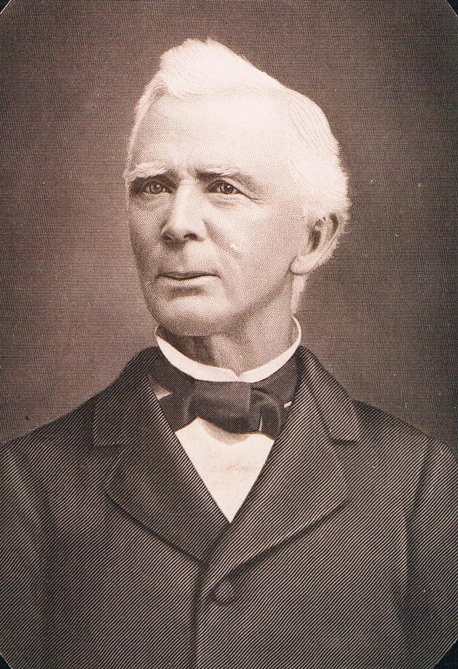
d)
My great-grandfather, A.O. Porter I, businessman, farmer and attorney at law.
Born in Tennessee, as far as I can determine, he ended up in Indiana for some reason, at some time, and travelled to California in 1854 -- not without its difficulties and dangers -- in search of a brother who had disappeared during the Gold Rush. The brother had died. A.O. returned to Shelbyville with the intention of moving to California as soon as it became possible to travel by rail.
The Union Pacific was completed in 1870. A blizzard in the same year killed nearly all the livestock in the Midwestern states, thus greatly encouraging emigration to California soon afterwards, which he did when my grandfather was only a year or two old.
A.O.'s father commanded a ship during the naval war of 1812.
A.O.'s grandfather, John Porter, was a Scots-Irish immigrant from Belfast who came over in 1755. We know nothing about him.
Ethnically, we considered ourselves Scots-Irish, although we took no real interest in Scotland, Ireland, or England.
We considered ourselves Americans.
We are not related to the Porter family of naval heroes (for example, David Dixon Porter). They were a separate family.
"Porter" appears to be a very common name in Indiana.
It's like kicking over a rock.

e)
My daddy.

f)
My daddy with his grandma, Anna Green.

g)
My daddy with his mama, Lura Whitlock, my first grandmother.
Lura died very suddenly when my daddy was about 14. He had almost no warning, and was completely devastated. I don't believe he ever even knew the exact cause of death.
There were 4 siblings in the Whitlock family: Maud was the eldest; Ben the youngest. Lura and Frances were in between.
I have a book -- "The Plays and Poems of Ben Jonson", an Elizabethan contemporary of Shakespeare, and one of my favourite writers, even today -- inscribed "From Lura and Frances to Maud and Ben", I believe, "Christmas, 1897".
I never noticed this inscription for many years, although I read the book several times. Then I thought: "How come they were separated at Christmas time?" Well...
The answer is that
Ben lost a leg in a railway accident at age 14, running along the platform to greet someone, when he slipped and fell underneath the train. Maud spent 6 months, an entire winter, nursing him back to health in a frame cabin in Cripple Creek, Colorado, where I assume the accident occurred. You can imagine it: 6, 8, 10 feet of snow, sub-zero temperatures, etc. etc. It's about 10,000 ft altitude. A very tough place in the 1890s.
We used to have a photo of the interior of the cabin: walls covered with framed magazine illustrations, presumably for insulation, including a large portrait of the original "Mad Magazine" cartoon character known since the 1950s as "Alfred E. Neuman", in a big huge bulky Victorian frame, with the caption:
"What's the Good of Anything? Nothing."
Ben never really recovered from this and died young, I think in his late 30s.
He was always referred to as "Poor Old Uncle Ben"; I never saw a picture of him.
Most people recover from amputations, more or less; one can only imagine the rest. Perhaps he lost his mind to some extent; perhaps he suffered from recurrent infections, one of which finally proved fatal; perhaps he became addicted to pain-killers; maybe it was a combination of everything put together; it wouldn't surprise me; who knows?
Whatever happened to him in the end, I got the impression that it was considered vaguely scandalous.
But it was an accident; he didn't endure decades of pain for the fun of it.
It seems strange that she would keep a photograph of the interior of the cabin, but not a photograph of her brother, or herself, or even her two sisters when they were younger; no group photographs, family photographs, her parents, nothing.
Perhaps she thought they weren't important.
She did show me a portrait photograph of some member of her family in a Union army officer's uniform, after escaping from a Confederate prison camp by tunnelling under the walls and walking across 3 or 4 states to reach his own lines. His face looked almost normal, but his hands were very thin. She said she had relatives around Richmond, so I assume they fought on both sides (either that, or they were an "anti-sesesh" family, which I think is more likely).
I was a Confederate sympathizer, even then, but I never said anything.
Anyway the upshot of all this is that my grandfather
married 2 out of 3 sisters, Lura and Maud, one after the other. The first marriage lasted about 20 years, the second about 40. The third sister, Frances, never married, and became an art teacher at the University of California at Long Beach. She lived to be 88; I've always wondered vaguely whether she was waiting for him.
She lived in a small frame house in Hermosa Beach, California, full of boxes and boxes of 3/4 used art materials -- pencil stubs, bits of chalk, unfinished paintings, drawings, and other bits of artistic junk, with a mean old cat -- really vicious.
The cat scratched everybody but her. They called the Humane Society when Frances died; they sent some guy out who just said, "Here, kitty, kitty", and it went up right up to him, purring and all friendly as hell! Some people have a gift with animals.
The practice of marrying one's deceased wife's sister was considered vaguely scandalous for centuries, and was actually illegal in England for about 200 years, until legalized by the Deceased Wife's Sister Marriage Act of 1907. Believe it or not.
The reason is said to have been some weird Biblical verse, but I never found it in my Bible studies. I think it's a misreading of something else.
(There is a passage commanding widows to marry their deceased husband's brother [Deut. 25:5, with endless complications, as usual], which led to many scandals after the 1974 war in Israel. There were cases in which the brother said, "Sure, I'll release you, but it'll cost you 10,000 dollars."
But there is nothing prohibiting a widower from marrying his deceased wife's sister.)
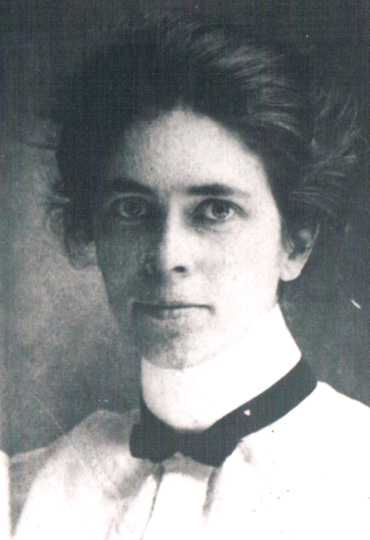
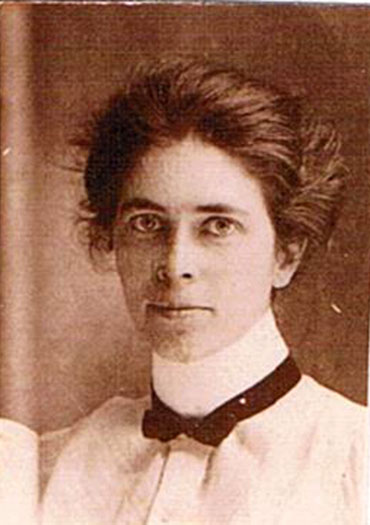
version 2
h) For many years, I thought, "What a terrible picture". Then the thought occurred to me: "This is the face of a dying woman". That haunted look in her eyes pierces my soul: it's like a message from beyond the grave.
It's as if she were trying to tell us something. But what?
It's not hard to imagine: "I must leave you. I'm going. It can't be helped. Be brave, and always do right".
--

i) Farewell, the tranquil mind, farewell content...

j) My daddy at 16.
--
Joke caption:
j) With the fiendish ingenuity typical of all master criminals, this youthful member of a South American drug cartel paramilitary organization wears a uniform designed to allow him to pass himself off as a Boy Scout.
The sash bearing the words "Medicine Man" -- obvious chicano gangland slang for "heroin, crack and marijuana dealer" -- provides an additional layer of deception while simultaneously allowing him to advertise his wares.
"Obvious" = it's not true
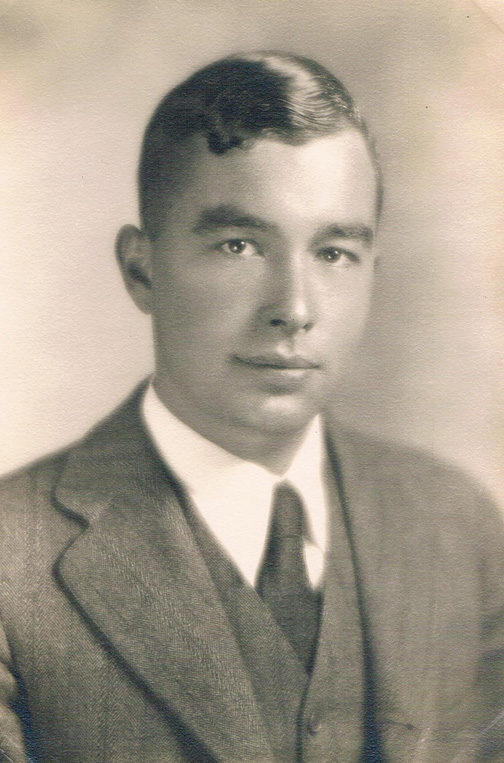
k)
"I have been a good boy,
Wed to peace and study --
For example:
-- Harvard Law School (back in the days when that was really something); Phi Beta Kappa; Bronze Star with Unit Citation, Okinawa; 32nd degree Mason; etc. He never did what he wanted; he did what other people expected of him.
In fairness to his participation in the war, it should be kept in mind that his job was not to kill people, but to try to talk them into surrendering, a dangerous and unrewarding task at which he was singularly unsuccessful, although he spoke Japanese. Most of them were Okinawans concealed in caves in nearly inaccessible locations. They threw their children off cliffs and jumped after them.
It should be obvious that what he did was very dangerous: one soldier in there with a grenade and he's a dead man.
As for the Masons, I don't think he believed one word of their codswallop, ever. What I don't understand is that he continued to have anything to do with them when he no longer needed them to make money.
I think it was shyness -- an unwillingness to assert himself out of fear of "hurting people's feelings", as a result of which they invariably made a monkey out of us, like the Masons. A family and perhaps a national or racial weakness.
My daddy was 20 years old when the stock market crashed, and life was not a game. My grandfather never went to law school; he studied for the bar exam, passed, and practised successfully for about 40 years.
But there was no assurance that the future would be as easy.
"I shall have an old age,
Coarse, ribald and bloody."
My daddy never quite got around to the second half of the quatrain; sometimes I think he should have. I think that's my job.
I've got a couple of funny stories about the Masons if you can see the humour in it.
More to come.
In the meantime, I don't think the film "Forces Occultes" is an exaggeration.

l)
Another master criminal hits the dirt in this nether sphere of ours, probably the antechambre to some hell from a distant world. Watch that kid pick that guy's pocket in about another 2 seconds.

m)
"Uncle Louie", on my mother's side -- Louis P. Hall: professor of dentistry and Dean of the School of Dentistry at the University of Michigan.
--
Joke caption:
Possibly another illegal immigrant from Michoacán (note the obviously Aztecan/Mayan features; probably a beneficiary of some early forerunner of today's Affirmative Programs; etc. etc. blah blah blah.
Analysis:
Speculation; innuendo; baseless assertions; the "uttering of obvious absurdities as if they they were self-evident truths" (a technique referred to by Enoch Powell as "an instrument for brain-smashing" -- a basic technique of zealots and ideologues everywhere, particularly Leftists).

n)
Note the antique Japanese doll. I come from a pro-Japanese family; my grand-mother collected Japanese antiques, sometimes wore a black silk kimono, wrote haikus (a Japanse poetical form, although she wrote them in English), practised Japanese calligraphy, and had many Japanese friends, many of whom she had known for 40 years; but we would have gotten mad if anybody had told us that we were responsible for the war.
My mother was indignant that the Japs were planning to attack us while negotiating with us at the very same time; but what the hell were we doing?
What was the US fleet doing in Hawaii if not to threaten Japan?
It should have been obvious to anyone that breakdown in the negotiations would mean war; we were fighting them illegally in China; we were cutting off all access to hundreds of vital materials they needed to prevent immediate military collapse in China and industrial collapse at home; we were demanding conditions which could never be met.
What did we expect?
What do the Americans know about Japanese disputes with China? Nothing.
How many Americans could even find either country on a map?
When was the last time the Americans ever negotiated anything honestly, with a real aim to a negotiated settlement? The last time I can recall is after the Mexican-American War.
On the contrary: we put pressure on people, and as soon as they give in, we up our demands! The British are the same.
Of course, to Communists and Jews we give everything away.
--
Obviously, I acquired most of my "extreme views" in adulthood -- but not all; another story.
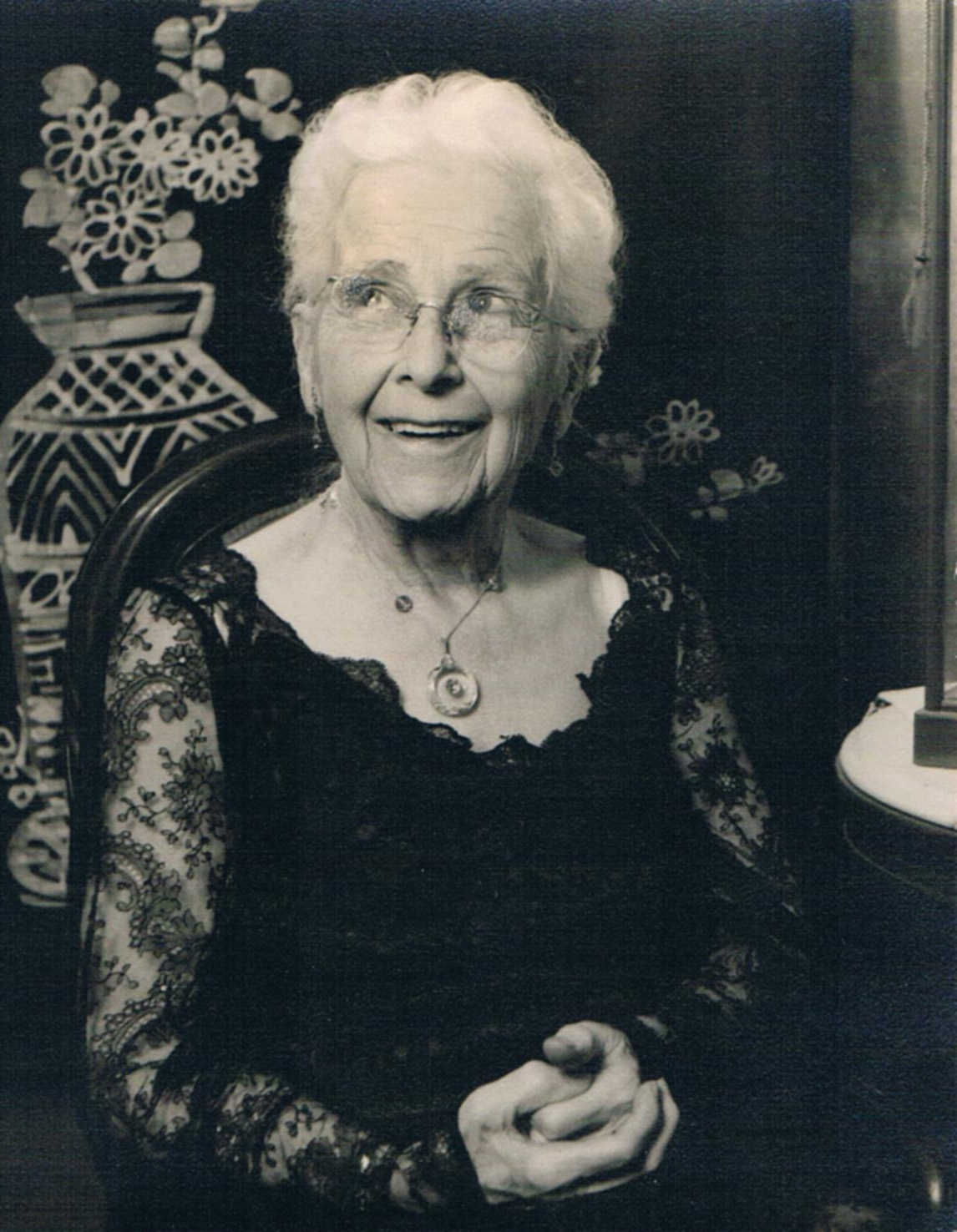
m)
As a child, I felt an intense love for my grandparents, particularly, my grand-mother (actually my great-aunt, as I have explained above): a love so intense I have rarely felt anything like it since.
She spent the summer of 1911 working with slum kids in New York City. She had a photo of herself on the docks, with the skyline in the background.
She never forgot one little boy who told her, "Golly, Miss Whitlock, if there were more nice ladies like you, there wouldn't be so many bad boys".
I feel sorry for children -- for anyone -- who doesn't realize what real grand-parents are like.
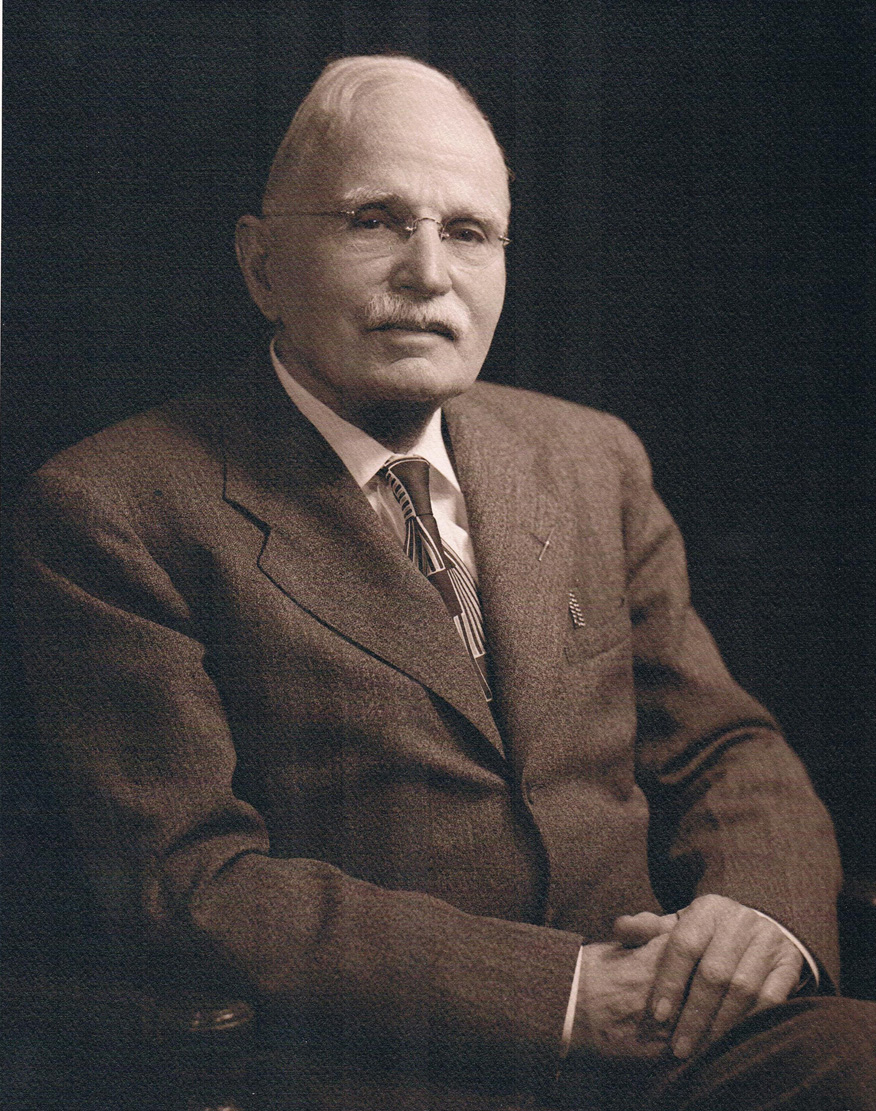
o) My grand-father: a real gentleman. We will not see his like again.
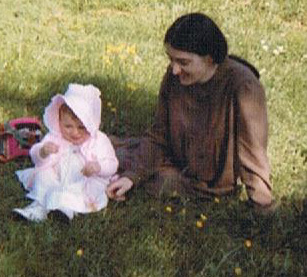
p)
Life continues.
-
C.P., 19 October 2016
Return to My Illustrious (but non-existent) Mexican and Spanish Ancestry part 1
